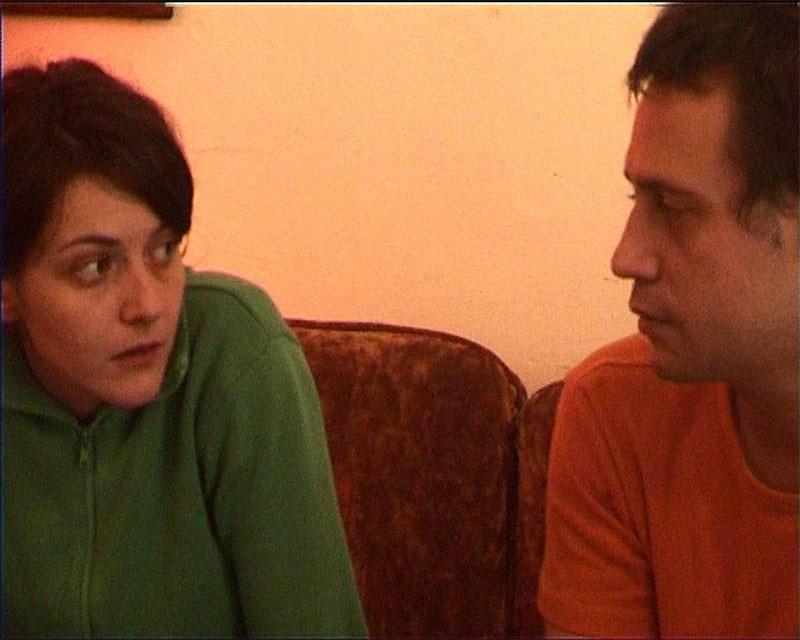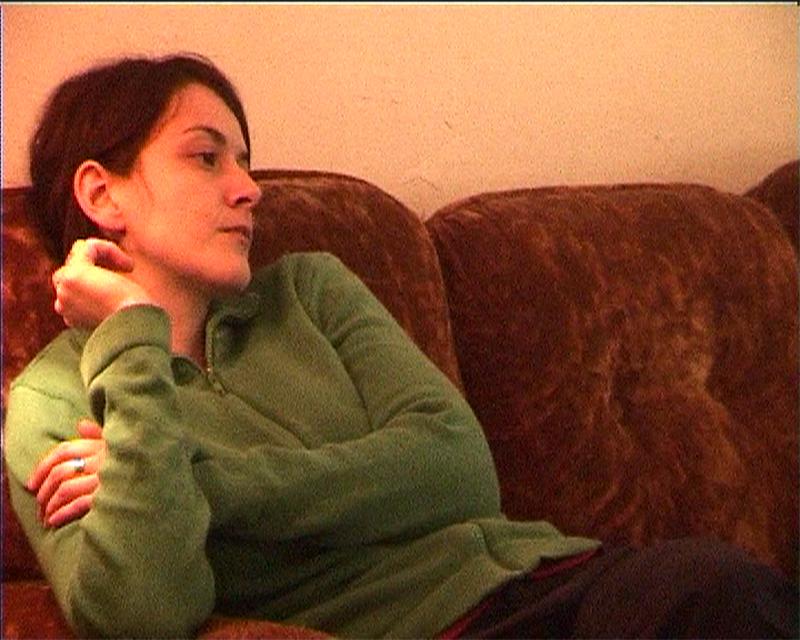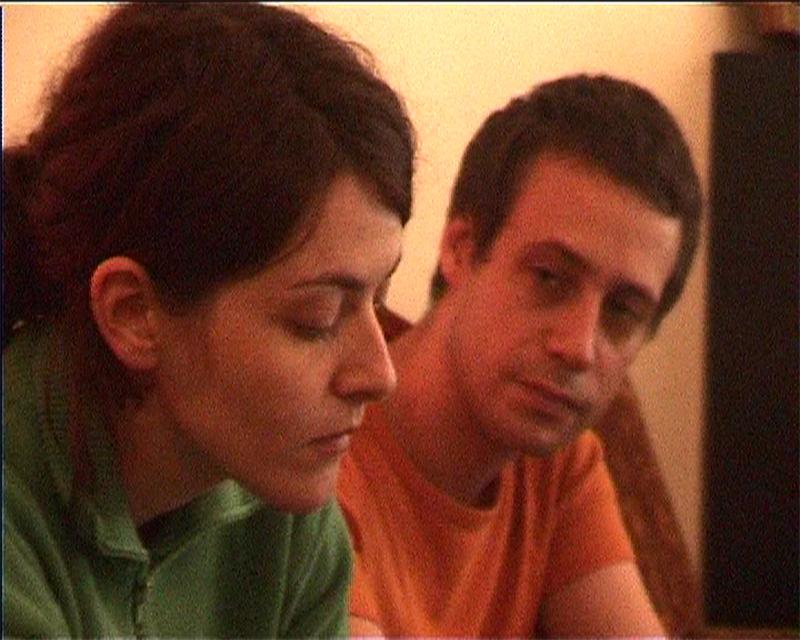Heinrich and Mary-Jane
A man and woman sit on a couch. They were once a couple. Whether they still are or not isnt quite clear, not even to them: Sometimes I hate you for all the things youve done to me, she says. You know, I love you, he says. Thats the thing.
Stefan Zlamals Heinrich und Mary-Jane is a somewhat unusual kind of found-footage film. Instead of rearranging previously shot material, Zlamal worked with two found soundtracks, allowing them to collide with a 12-minute continuous tracking shot of the space inhabited by the two, filmed with a handheld camera: The young woman with the casual zippered jacket (Astrid Rausch) whispers, sighs and yells in the voice used to dub Liv Ullmann in the German version of Bergmans Scenes from a Marriage. Her visitor in a tight red T-shirt (Wolfgang Dangl) replies with passages from a reading given by Berlin writer Sven Regener.
While Zlamals handheld camera, close to the actors bodies and faces most of the time, suggests authenticity, the tone and echo of their voices indicate different spaces apart from this living room, which is furnished in a manner typical of university students. Their choice of words also provides evidence of other times and social settings, such as the womans coolly cultivated analysis: Pardon me for putting it this way, but it was a purely sexual relationship. And the mans flippant attempt at covering up his own vulnerability: Wow, I have no idea what to say.
The speech which should resemble quotes, which Brecht demanded from good actors, is in this case actual quotes. The form of what is being portrayed contains more information than its content, and so Heinrich und Mary-Jane is also about perception in cinema: For both the quarreling couple and us as viewers, the synchronicity, literally togetherness in time, is revealed to be the grand illusion that it is.
(Maya McKechneay)
Translation: Steve Wilder
"Bleibt alles anders" Video & Co: Das Festival in der Akademie der Künste widmet sich der Kunst des Unfertigen. Von Christian Tretbar, Der Tagesspiegel Berlin, 30.1.2007 (Critique)
Stefan Zlamals lässt die Frage in seinem Kurzfilm Heinrich und Mary-Jane offen und trifft damit den Nerv der Transmediale 07. Denn das Festival für digitale Kunst und Kultur, das heute Abend von Kulturstaatsminister Bernd Neumann eröffnet wird, greift das Unfertige auf. Es geht um scheinbar Abgeschlossenes, das in anderer Form weiterlebt.
Unfinish heißt das Motto des Festivals, und Zlamals Film ist in doppelter Hinsicht ein gutes Beispiel für einen unvollendeten kulturellen Prozess. Denn beide Tonspuren des Kurzfilms sind reines Zitat: zwei Stimmen, die in neuem Kontext aufeinander reagieren. Mary-Janes Stimme stammt von Marianne aus Ingmar Bergmans Klassiker Szenen einer Ehe von 1973. Wenn Heinrich ihr antwortet, ist der Autor und Sänger Sven Regener zu hören, der die im Film verwendeten Worte auf einer Lesung gesprochen hat. [...]
http://www.tagesspiegel.de/berlin-kultur/archiv/30.01.2007/305
Heinrich und Mary-Jane
2005
Austria
12 min



